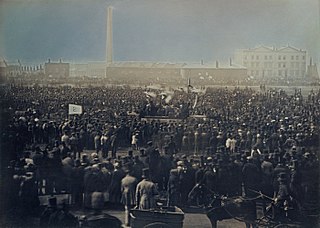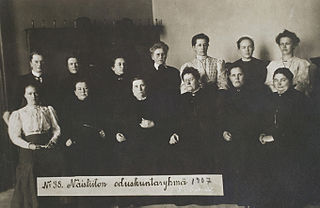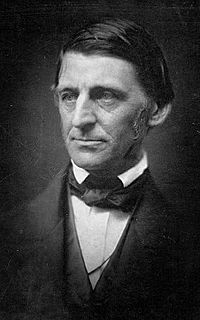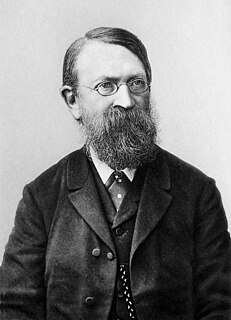
Raymond Claude Ferdinand Aron was a French philosopher, sociologist, political scientist, and journalist.
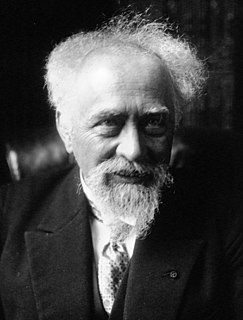
Jean Baptiste Perrin was a French physicist who, in his studies of the Brownian motion of minute particles suspended in liquids, verified Albert Einstein’s explanation of this phenomenon and thereby confirmed the atomic nature of matter. For this achievement he was honoured with the Nobel Prize for Physics in 1926.

Jules Barthélemy-Saint-Hilaire was a French philosopher, journalist, statesman, and possible illegitimate son of Napoleon I of France.

Michel Butor was a French writer.
Étienne Gilson was a French philosopher and historian of philosophy. A scholar of medieval philosophy, he originally specialised in the thought of Descartes, yet also philosophized in the tradition of Thomas Aquinas, although he did not consider himself a Neo-Thomist philosopher. In 1946 he attained the distinction of being elected an "Immortal" (member) of the Académie française. He was nominated for the Nobel Prize in Literature.

Jean-Étienne Guettard, French naturalist and mineralogist, was born at Étampes, near Paris.

David-Augustin de Brueys was a French theologian and playwright. He was born in Aix-en-Provence. His family was Calvinist, and he studied theology. After writing a critique of Jacques-Bénigne Bossuet's work, he was in turn converted to Catholicism by Bossuet in 1681, and later became a priest.
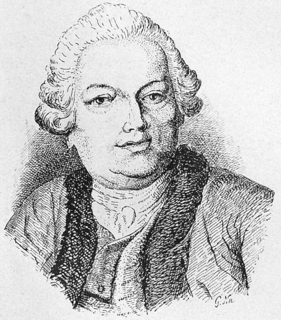
Claude Bourgelat was a French veterinary surgeon.
Ferdinand Alquié (French: [alkje]; was a French philosopher and member of the Académie des Sciences Morales et Politiques from 1978. In the years 1931 to 1945 he was a professor in various provincial and Parisian lycees, and later at the University of Montpellier and Sorbonne where he worked until he retired in 1979.
Georges Politzer was a French philosopher and Marxist theoretician of Hungarian Jewish origin, affectionately referred to by some as the "red-headed philosopher". He was a native of Oradea, a city in present-day Romania.
Clément Rosset was a French philosopher and writer. He was a professor of philosophy at the University of Nice Sophia Antipolis, and the author of books on 20th-century philosophy and postmodern philosophy.
Joseph Galien OP was a Dominican professor of philosophy and theology at the University of Avignon, meteorologist, physicist, and writer on aeronautics.
Martial Gueroult was a French philosopher of the early and mid- 20th Century. His primary areas of research were in 17th- and 18th-century philosophy as well as the history of philosophy.

Versailles Saint-Quentin-en-Yvelines University is a French public university created in 1991, located in the department of Yvelines and, since 2002, in Hauts-de-Seine. Consisting of eight separate campuses, it is mainly located in the cities of Versailles, Saint-Quentin-en-Yvelines, Mantes-en-Yvelines and Vélizy-Villacoublay / Rambouillet. It is one of the five universities of the Academy of Versailles.
Louis de Courcillon, known as the abbé de Dangeau was a French churchman and grammarian, best known for being the first to describe the nasal vowels in the French language. He was a younger brother of Philippe de Courcillon de Dangeau.
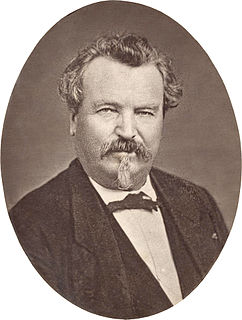
Pierre Trémaux was a French architect, Orientalist photographer, and author of numerous scientific and ethnographic publications.
The Transport Ministry is a government ministry of Algeria. Its head office is in El Biar, Algiers.

Étienne Klein is a French physicist and philosopher of science, born in 1958. A graduate of École Centrale Paris, he holds a DEA in theoretical physics, as well as a Ph.D. in philosophy of science and an accreditation to supervise research (HDR).
François Victor Mérat de Vaumartoise was a French physician, botanist and mycologist.
Hélène Metzger was a French philosopher of science and historian of science. In her writings she focused mainly on the history of chemistry. Due to her Jewish background, she became a victim of the Holocaust in the Second World War, dying in Auschwitz concentration camp.
